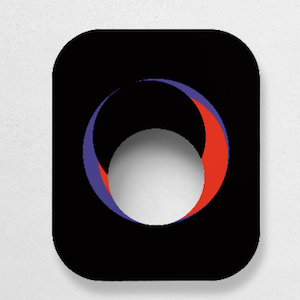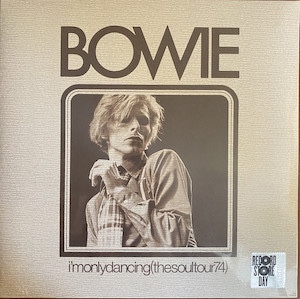Musical Hardware to Software
By Sana Joseph
From the mesmerizing rhythms of peoples with ancient drums, to the symphonic melodies of the orchestras, this journey of the evolution of music is quite remarkable. From the way we play, to digitisation and electronic advancements in sound. Looking back, history shows how these technological advancements took place in tandem with playing music alongside its production and creation. We have indeed witnessed an extraordinary transition from mere clattering hardware contraptions of early music production to today’s seamless integration of sophisticated software systems with the help of Artificial Intelligence. Find out more here in Musical Hardware to Software

In recent decades, the emergence of computer software-based tools has spurred a new golden era of creativity as a driving force behind modern music production.
Digital audio workstations (DAWs), virtual instruments, and a vast array of plugins have revolutionized the creative process, enabling musicians to explore limitless sonic possibilities, even from the comfort of their own bedrooms.
So much talked about, the current buzz is bringing both excitement and fear. A ground-breaking new player has emerged in this stage, artificial intelligence (AI). And everyone has an opinion of to how it will ‘play out’ in our creative world.
Harnessing the power of machine learning algorithms, (machines that can understand and recreate patterns) this new digital ability is crossing from practical implements to create worlds.
With much talk of Chatbox GPT creating songs that famous names may well have penned it is getting rather mixed reviews.
Such revolutions in the world of music being generated with the help of AI are more than just words, this new power can work across multiple strands of the musical arena.
For instance, AI has taken music production to unimaginable heights by composing, arranging, and even performing music with breathtaking proficiency.
Godmother Holly Henderson
In her latest collaboration, American composer Holly Herndon teamed up with electronic musician Jlin to create “Godmother,” a remarkable track generated using an artificial intelligence named Spawn. Spawn is an evolving machine intelligence that learns from its surroundings, including the artists works it is exposed to.
In the case of “Godmother,” Spawn listened to the creations of its godmother Jlin and sought to reinterpret them through the voice of Herndon’s own mother. Notably, this piece was crafted solely from silence, without any samples, edits, or overdubs.
Reflection Brian Eno
Brian Eno is a composer, record producer and visual artist best known for his contributions to ambient music. ‘Reflection’ is his 26th studio album of which he created a generative version through an app. The most gripping fact about this version is that it plays infinitely adapting accordingly to the time of the day. Eno explains that his intention with “Reflection” was to create endless and ever-evolving music, likening it to sitting by a river that remains constant yet continuously changing.
Break Free Taryn Southern
Taryn Southern, an American singer-songwriter, made history as the first pop star to create an entire album using artificial intelligence called “I Am AI.” With the lyrics penned by herself, the rest of the entire music was composed by Amper AI (an AI music composition tool). This song is a clear example of how machine learning can be harnessed to process, compose, and produce music. Artists can use rule-based AI to set parameters like beats per minute, rhythm, instrumentation, and style.
On the other hand, generative AI allows artists to input musical data, which is then processed using deep learning techniques to create new compositions based on statistical probabilities and patterns. Regardless of the approach, the artist’s input and editorial arrangement plays a crucial role in shaping the final outcome.
Not Easy Alex da Kid
In 2016, producer Alex Da Kid collaborated with X Ambassadors, Elle King, and Wiz Khalifa to release the single “Not Easy.” What made this collaboration unique was the involvement of IBM Watson, the renowned super-intelligent computer system. Known for its triumph on “Jeopardy! ( a tv game show )” Watson showcased its songwriting abilities through “Not Easy.”
By analysing patterns in current pop music, Watson provided compositional insights to Alex Da Kid, who then crafted the song. The result was a heartfelt ballad about lost love, where the combination of human performances and Watson’s contributions created a moving and resonant musical experience. This collaboration demonstrated that there are multiple paths to creating impactful songs, even with the assistance of a computer system.
Hallo Spaceboy David Bowie
In 1995, David Bowie embarked on a daring and ambitious project with his album “Outside.” Known for his experimental nature and artistic transformations, Bowie took a leap outside the box for this album. He utilized a program called Verbasizer to assist in writing the lyrics, adding a unique twist to his creative process. One notable track from the album, “Hallo Spaceboy,” later received a remix featuring the synth-pop icons, the Pet Shop Boys.
The song carries the distinct cosmic imagery and romantic themes commonly found in Bowie’s music, but the knowledge that it was written, at least in part, with the help of artificial intelligence adds a new dimension to its interpretation. David Bowie’s forward-thinking approach to music and his willingness to explore new frontiers is epitomized in this ground-breaking endeavour.
World is Mine Hatsune Miku
Hatsune Miku, is the artificial ambassador of the synthesizer program Vocaloid. This “virtual idol” has gotten such a following, she performs “live” despite being, well, not exactly real.
However, her impact is most definitely real. And that’s best demonstrated by this song, one of many, made with Japanese band Supercell. Everything about “World is Mine” is bursting with energy, most notably from Hatsune Miku herself. And she’s assisted by a backing track that provides plenty of momentum for her sweet, soaring vocals. On this track, the world is truly hers, A.I. or not.
In the ever-evolving landscape of music, AI has indeed become a ground-breaking factor and is pushing the boundaries of creativity. Even at the same time, could some have the potential to take over human creativity? Yet from helping artists like Bowie generate lyrics to completely creating a whole music album, the burgeoning of AI is just at its inception.
As we venture into the future, it becomes increasingly evident that AI will interact with the landscape of music creation. It’s too early to know if this will create better or worse music only time will tell. We have come a long way from the drums we humans played with wood and metal to the uncharted territories of AI.
If you enjoyed reading Musical Hardware to Software, why not read Gateway; Tangible & Ethereal
.Cent London, Be inspired; Get involved.





